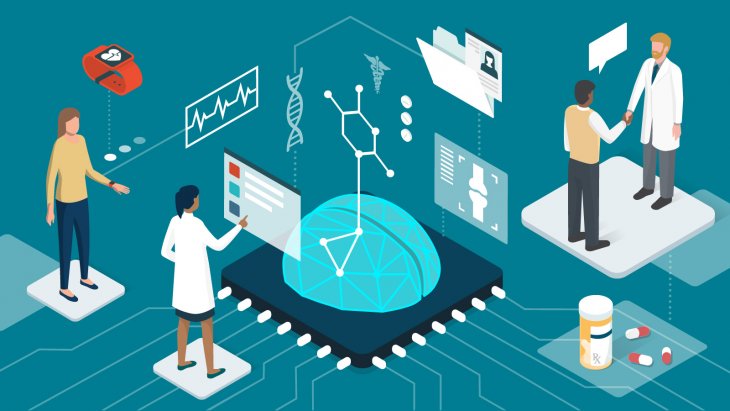
Artificial Intelligence’s (AI) Foray into Medical Diagnostics: Revolutionizing HealthcareArtificial Intelligence’s (AI) Foray into Medical Diagnostics: Revolutionizing Healthcare In recent years, artificial intelligence (AI) has emerged as a transformative force in healthcare, particularly in the field of medical diagnostics. The integration of AI into diagnostic processes has revolutionized the way healthcare professionals identify, diagnose, and treat diseases, leading to significant advancements in patient care and outcomes. Early Detection and Improved Accuracy AI-powered algorithms can analyze vast amounts of data, including medical images, patient records, and genetic information, with unprecedented speed and accuracy. This enables healthcare professionals to detect potential health issues at an earlier stage, when treatment is most effective. AI algorithms can also identify subtle patterns and anomalies that may be missed by human eyes, resulting in more accurate diagnoses. Personalized Medicine and Treatment AI-driven diagnostics allow healthcare providers to tailor treatment plans to individual patients. By analyzing genetic profiles, lifestyle factors, and other relevant data, AI can help predict disease risk, optimize drug selection, and identify the most suitable treatment options for each patient. This personalized approach leads to more effective and targeted therapies. Reducing Costs and Improving Access AI-powered diagnostic tools can significantly reduce the time and cost associated with traditional diagnostic processes. For example, AI algorithms can interpret medical images in seconds, eliminating the need for expensive and time-consuming manual analysis. This efficiency enables healthcare providers to diagnose patients faster, resulting in lower overall healthcare costs and improved access to care. Non-Invasive and Minimally Invasive Diagnostics AI-driven diagnostic techniques can be non-invasive or minimally invasive, reducing patient discomfort and recovery time. For instance, AI algorithms can detect skin cancer with high accuracy using smartphone images, eliminating the need for biopsies in many cases. Similarly, AI-enhanced endoscopes can provide real-time guidance during minimally invasive procedures, improving surgical outcomes and reducing the risk of complications. Integration into Healthcare Systems AI-powered diagnostic tools can be seamlessly integrated into existing healthcare systems. Electronic health records (EHRs) and patient portals can be enhanced with AI algorithms to provide real-time diagnostic support, trigger alerts for potential health issues, and guide patient self-management. This integration ensures that AI capabilities are available to healthcare providers and patients when and where they are needed most. Challenges and Considerations Despite the immense advancements, AI-powered medical diagnostics also present certain challenges and considerations: * Data privacy and security: AI algorithms rely on vast amounts of sensitive patient data, raising concerns about privacy breaches and data misuse. * Bias and fairness: AI models can inherit biases from the data they are trained on, potentially leading to inequitable diagnoses and treatment recommendations. * Regulatory approvals: AI-driven diagnostic tools require rigorous validation and regulatory approvals before they can be widely adopted in clinical practice. Conclusion The integration of AI into medical diagnostics has ushered in a new era of healthcare, characterized by earlier detection, improved accuracy, personalized medicine, reduced costs, and non-invasive or minimally invasive procedures. While challenges remain, AI-powered diagnostics continue to evolve and hold immense promise for revolutionizing healthcare and improving patient outcomes. As AI algorithms become more sophisticated and accessible, the transformative potential of AI in medical diagnostics will continue to expand, shaping the future of healthcare for the better.
Posted inNews